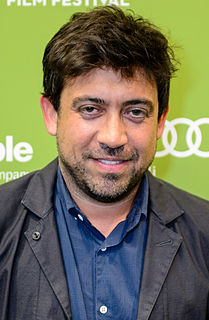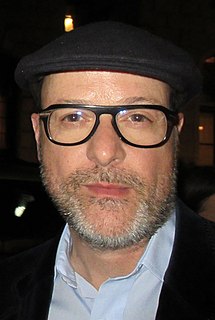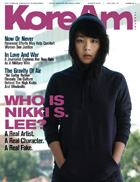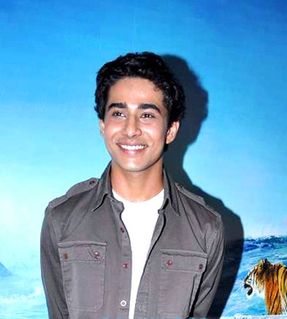A Quote by James Wan
Designing the technical aspects of my camera movement for me is very important. I want the camera to be a big part in telling the story as well, like what I really believe in with all the films I make.
Related Quotes
I'm very heavily involved in the editorial post-production process, and the camera - it's just such a big part of my storytelling language. I like creating the tension; I like creating the emotion through the movement of my camera, or the lack of movement through my camera, depending on what fits the scene best.
Jack [Nicholson] really knows about the camera. He's one of the directors who likes to play with the camera. He'll change things around, play with lighting, things like that. He'll even spend hours on the set-up for an insert shot. He's an interested person who gets involved in all the aspects of the films he is making.
Being behind the camera you have control; you have the ability to make decisions for characters, for where the story line's going to go, how you want to put it out there, how you want to edit it. Acting is like where you paint on the canvas, and being behind the camera is like being either the paint or the paintbrush. They're both a part of the creative process, it's just that they have two different functions.
I don't want to carry big things around with me. I'm lazy. The snapshot camera, you just carry it around and take the picture. You don't need to think about anything. People in the street are not going to wait for you with a big camera. They would freak out. With a snapshot camera, they are comfortable.
I know that I present very - they say that I present very, very calm and very, very smart, very articulate, elegant. Yeah. And I go, 'Brilliant teams of makeup and wardrobe happened to dress me and clothe me and put my face on and do my hair. And then these brilliant teams of writers give me words to speak. I just need to make sure that I have them all in this combination in my body, in my being, and then I get to do it on camera, in front of a brilliant team of camera workers who really know how to like me and make me sound good.' So I'm just really a dork in real life.
Once a photographer is convinced that the camera can lie and that, strictly speaking, the vast majority of photographs are camera lies, inasmuch as they tell only part of a story or tell it in distorted form, half the battle is won. Once he has conceded that photography is not a naturalistic medium of rendition and that striving for naturalism in a photograph is futile, he can turn his attention to using a camera to make more effective pictures.
I have received the digital camera as a blessing. It has really changed my life as a filmmaker, because I don't use my camera anymore as a camera. I don't feel it as a camera. I feel it as a friend, as something that doesn't make an impression on people, that doesn't make them feel uncomfortable, and that is completely forgotten in my way of approaching life and people and film.

































